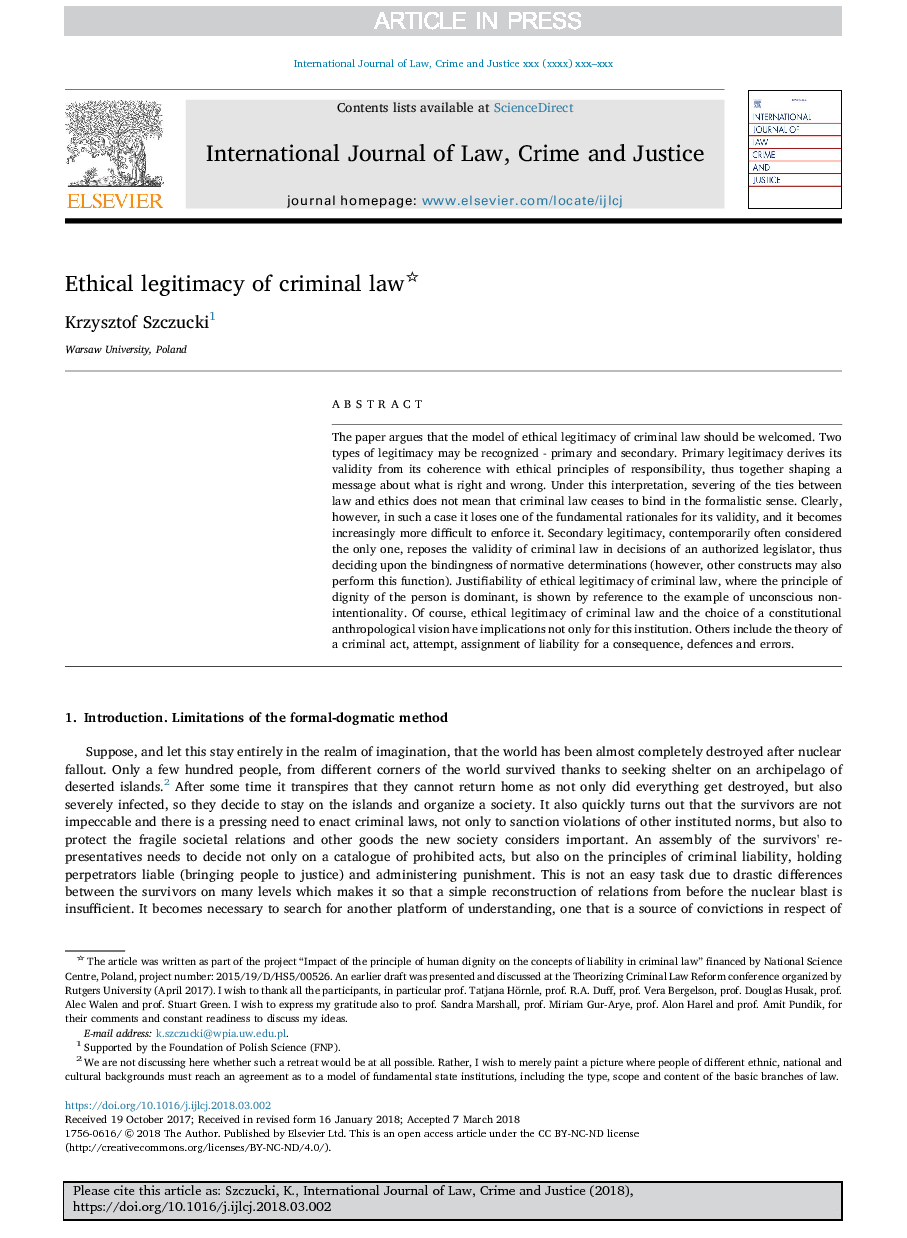ترجمه فارسی عنوان مقاله
مشروعیت اخلاقی قانون کیفری
عنوان انگلیسی
Ethical legitimacy of criminal law
| کد مقاله | سال انتشار | تعداد صفحات مقاله انگلیسی |
|---|---|---|
| 150548 | 2018 | 10 صفحه PDF |
منبع

Publisher : Elsevier - Science Direct (الزویر - ساینس دایرکت)
Journal : International Journal of Law, Crime and Justice, Volume 53, June 2018, Pages 67-76
ترجمه چکیده
این مقاله استدلال می کند که مدل مشروعیت اخلاقی قانون کیفری باید مورد استقبال قرار گیرد. دو نوع مشروعیت ممکن است شناخته شود - ابتدایی و ثانویه. مشروعیت اولیه اعتبار خود را از انطباق آن با اصول اخلاقی مسئولیت می گیرد، بنابراین با هم یک پیام را در مورد آنچه درست و غلط است شکل می دهد. با توجه به این تفسیر، قطع ارتباط بین قانون و اخلاق به این معنا نیست که قانون کیفری متوقف شود به معنای رسمی. با این حال، واضح است که در چنین مواردی، یکی از دلایل منطقی اعتبار آن را از دست می دهد و برای اجرای آن به طور فزاینده ای دشوار می شود. مشروعیت ثانویه، که اکثرا بعنوان تنها یکی از آن محسوب می شود، اعتبار قانون کیفری را در تصمیم گیری یک قانونگزار مجاز، در نتیجه تصمیم گیری بر پذیرش تصمیم گیری های هنجاری (با این حال، ساختارهای دیگر نیز ممکن است این عمل را انجام دهند) است. توجیه مشروعیت اخلاقی قانون کیفری، که در آن اصل حرمت شخص غالب است، با اشاره به نمونه ای از غرورآفرینی ناخودآگاه نشان داده می شود. البته، مشروعیت اخلاقی قانون کیفری و انتخاب یک چشم انداز انسان شناسی قانون اساسی، نه تنها برای این مؤسسه است. دیگران شامل نظریه یک عمل جنایی، تلاش، اختصاص مسئولیت در نتیجه، دفاع و اشتباهات است.

